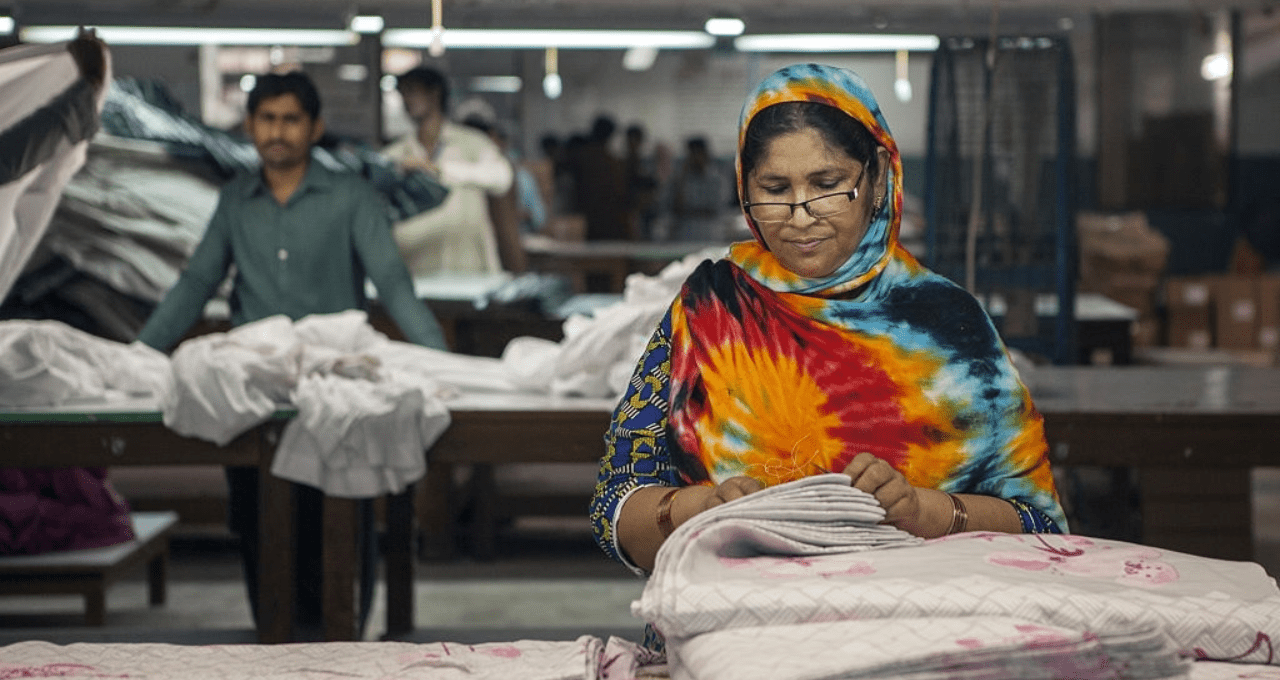Pakistan’s textile exports are set to dramatically dip as the sector is hobbled by a nationwide energy crisis forcing daily power cuts on factories, with an industry leader warning about “a state of emergency” for the manufacturing hub. The nation is in the midst of a dire economic crisis, with runaway inflation, a depleted rupee and dwindling foreign exchange reserves hampering energy imports. Meanwhile, a heatwave has caused a surge in electricity demand, leaving a shortfall of over 7,000 megawatts — one-fifth of the country’s generation capacity — on some days this month, according to government figures. The energy shortage has hit the vital textile industry, which supplies everything from denim to bed linen towards markets in the US and Europe, and accounts for 60 percent of the country’s exports.
“The textile industry is in a state of emergency,” Qasim Malik, the vice president of the Chamber of Commerce in the manufacturing hub of Sialkot, told AFP. With authorities forced to ration the power supply with staggered blackouts, Malik said the “unannounced and unscheduled” outages disrupt the textile supply chain, which is “causing millions of rupees of losses”. “Should the power cuts persist there could be a decline of more than 20 percent in exports,” warned Sheikh Luqman Amin of the Pakistan Readymade Garments Manufacturers and Exporters Association.
Larger factories tend to have independent power plants, leaving small- and medium-sized factories in cities such as Lahore, Faisalabad and Sialkot most exposed. Owners have complained of power cuts of eight to 12 hours on a daily basis and face the dilemma of lower production or installing generators powered by petrol, which is also sharply rising in cost. “We can’t accept new orders because we are already behind on previous ones,” said Sialkot garment factory owner Usman Arshad. “Things can’t continue to go on this way.” Despite the nation’s economic woes, textile exports surged 28 percent to a record $17.67 billion in the fiscal year July-May 2021-22, the All Pakistan Textile Mills Association (APTMA) reported this week. The industry was buoyed by the tail end of the coronavirus pandemic, when it was freed of restrictions earlier than regional rivals India and Bangladesh. The new government of Prime Minister Shehbaz Sharif announced a budget on Friday attempting to turn around Pakistan’s dire finances. The ledger includes a raft of measures to convince the International Monetary Fund (IMF) to revive a stalled $6 billion bailout package.

